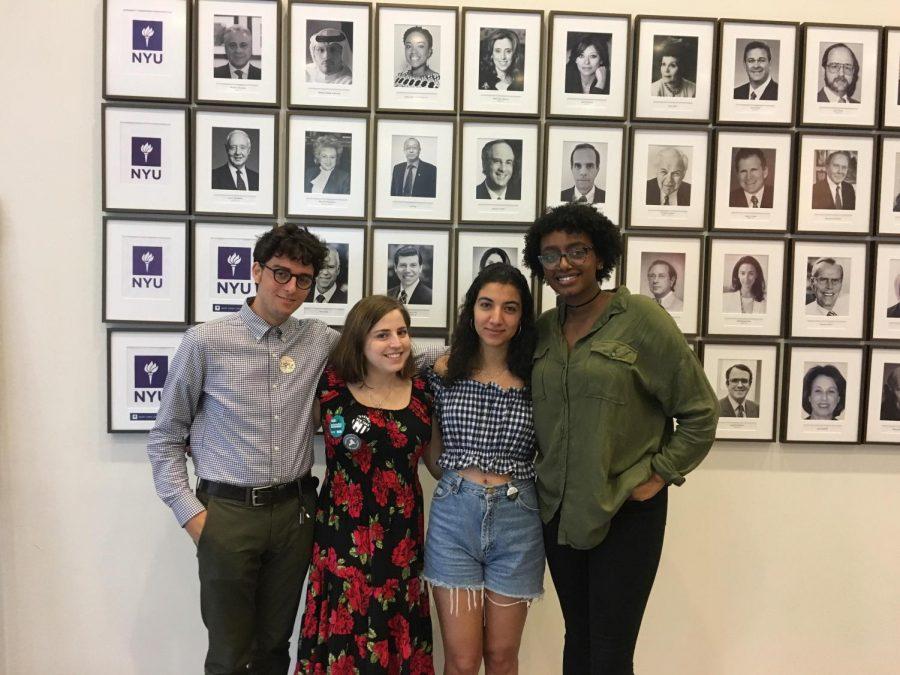Student Senators Take Another Shot At Board of Trustees Transparency
After resolutions for student and faculty representation on the board were rejected in July, Student Senators are proposing a new way to increase transparency.
(From left to right) Ben Zinevich, Rose Asaf, Leen Dweik and Bayan Abubakr.
September 13, 2018
On the heels of the Board of Trustees’ decision this summer to reject University Senate resolutions for student and faculty representation on the board, the Student Senators Council proposed a new resolution on Thursday morning it hopes will peel back the curtain surrounding the Board of Trustees.
If passed, the resolution — proposed by Senators-at-Large Rose Asaf and Bayan Abubakr, and Alternate Senators-at-Large Leen Dweik and Ben Zinevich — would create a system allowing students to request information from the university. This system, designed to increase transparency concerning how NYU spends its money, is modeled after the national Freedom of Information Act and local Freedom of Information Law.
“For a long time, we have felt NYU hasn’t been transparent enough with it’s students,” Asaf said at the Student Senators Council meeting. “Right now, it seems unlikely we will get a student on the board. If we can’t get someone in the room, we need to get the information out.”
While public universities, such as the City University of New York, fall under FOIL, private universities like NYU do not. This means that despite the fact that over $500 million, or nearly 10 percent, of NYUs revenue comes from federal grants, as listed in the senators’ proposal, the university does not have to make information on how this money was spent accessible to the public.
This would change if the resolution is approved, as the senators ask that NYU creates a website which allows students, faculty, staff and administrators to request information from any of NYU’s entities such as specific departments, schools or campuses. After listing what information they want, why they want it and their name, the hope is that NYU would provide the information without any additional steps.
“We think it would be phenomenal for NYU to break through the private university shroud,” said Asaf, going on to emphasize the need for greater transparency, accountability and accessibility on the part of the board.
Although this resolution marks a new approach to achieving this goal, this is not the first the university is hearing of student demands for a greater voice. Zinevich and his fellow senators see this new resolution as a compromise after the board denied the request for student and faculty representation in July.
“This is a compromise, it could be seen as a long-term form of deal-making with the board,” Zinevich said. “I think culturally, within the United States, freedom of information is something that’s cherished. It isn’t necessarily a radical thing to ask for.”
Abubakr echoed Zinevich’s belief that the resolution, which will be voted on on Sep. 27 by the Student Senator’s Council, was a compromise, but despite feeling that students, faculty and staff all have a stake in making information pertaining to NYU more accessible, feels that it still may be difficult to get the board’s approval.
“The Board of Trustees has been historically difficult in allowing students into their meetings, releasing their minutes and giving us information that lets us know what they’re really thinking about and talking about and discussing,” Abubakr said. “So I do imagine that it would be a bit more difficult to pass it on that end, but at the same time, we’re not asking for much, we’re really just asking for more transparency.”
Email Victor at [email protected].

























































































































































